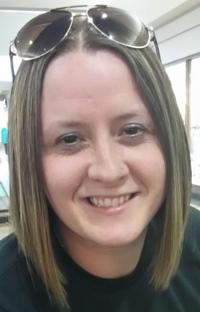
[ad_1]
Believe it or not, the election is only five weeks away.

Cortney Stewart
SEEING BEYOND
I don’t know if that sounds really far away or terrifyingly close. I guess it depends on where you’re standing. But one thing is for sure, it’s 2020 so we can expect the next few weeks to be anything but ordinary and boring.
The closer we get to Nov. 3, though, the more toxic the air feels. Everything is a political matter. Nothing is exactly what it seems. And the way we consume news and information in today’s world only sets us up to be exposed to the things we already think. We don’t read the opinion of the other side of the argument. We don’t assume that there is merit to any other side the story.
We’ve developed a standard behavior pattern of “us versus them.” It’s a zero-sum game. For one person to be right, anyone with a differing opinion must be emphatically, 100% wrong.
What’s worse is that we have placed ourselves in the hands of a technology that doesn’t have the capability of parsing truth from lies.
In 2018, Pew Research conducted a survey about Facebook and found that 43% of American adults get their news from the social media website and 55% of the adult population receive its news from social media over any other kind of news outlet.
That’s problematic because of a little thing called an algorithm.
I don’t know much about technology. I’m the least tech-savvy of anyone in my generation. But I recently stumbled upon a documentary put out by Netflix called “The Social Dilemma.” In this documentary, former employees of most social media platforms and even former engineers from Google sit down to explain what an algorithm is and how these little pieces of code are essentially upending our culture, our society and our democracy.
It was a really interesting watch. It was also pretty scary.
The documentary doesn’t tell us anything we haven’t heard or read before. But it does an excellent job of breaking down things into pieces that someone not well-versed in the world of code and computers can understand.
The documentary introduced me to a concept I’d never heard of before — persuasive technology. We’ve been told for years we should be concerned about our data and our privacy, that social media platforms and everyone in Silicon Valley was getting rich from mining our data and selling it to the highest bidder.
But it’s actually much more complicated than that.
I still don’t have my head wrapped all the way around what these computer engineers and coders were saying. But the gist of the documentary was that the technology itself is designed to, over time, incrementally change how we think and how we live.
Every minute we are on a screen is another opportunity to change the way we fundamentally behave. That may not seem like a big deal at first. I’m just one person. An incremental change is nothing to worry about.
But it isn’t just one person. It’s billions of people. Incremental change on a large scale can lead to a tidal wave.
We’ve been worried and concerned about things like election hacking and foreign interference. This documentary claims that foreign governments and those who want to upturn the democratic apple cart are not doing anything illegal. They’re using algorithms designed to make advertisers a lot of money and setting them to nefarious purposes. They’ve hijacked the kind of news that we see, the opinions that we are exposed to and the basic means by which we communicate with others and they’ve developed silos that keep us separated and divided.
And that’s a threat to democracy.
I know that every documentary comes from someone’s point of view. Nothing should be taken without scrutiny — “The Social Dilemma” included. But it’s worth a watch as we head into one of the most polarized elections in our country’s history.
We have a responsibility as American citizens to safeguard our democracy. Recognizing the ways that we may be manipulated by the tools we use to get our information is essential to that end.
Cortney Stewart is a 2003 graduate of Lecanto High School. She has bachelor’s degrees in political science and international affairs, a master’s degree in intercultural studies and is currently working on her Ph.D. in international conflict management. She most recently spent two years teaching and training students, teachers and government officials in Baghdad, Iraq. Email her at seeingbeyondccc@gmail.com.
[ad_2]
Source link